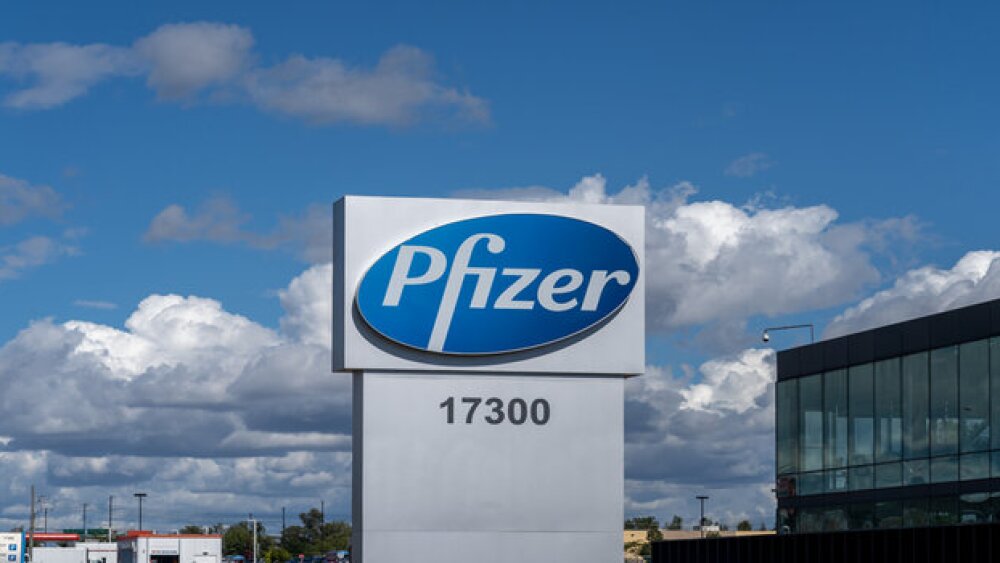SOUTH SAN FRANCISCO, Calif., June 11 /PRNewswire/ -- iZumi Bio, Inc., a biopharmaceutical company focused on the industrialization of induced pluripotent stem cell (iPS) technology with the mission of creating new therapeutics through cellular reprogramming and directed differentiation of patient cells, today announced the appointment of Corey S. Goodman, Ph.D., to the company's board of directors and scientific advisory board. Dr. Goodman most recently served as president of Pfizer's Biotherapeutics and Bioinnovation Center.
"Dr. Goodman's drug discovery and development expertise will be instrumental as we apply our iPS technology to the development of new therapeutics for unmet medical needs. We will look to Dr. Goodman's extensive knowledge and leadership in neurology to help advance our proprietary neurodegenerative programs in amyotrophic lateral sclerosis, spinal muscular atrophy and Parkinson's disease," said John P. Walker, chief executive officer of iZumi. "Over the next few months, we intend to build a world-renowned scientific advisory board, in order to provide guidance and scientific direction for both our proprietary neurodegenerative programs and for additional disease areas, such as metabolic disease, that we plan to pursue through partnerships."
"iZumi's approach opens a new door for stem cell research and its application to therapeutic discovery, and I am excited to work with the company to identify new treatment options for patients suffering from difficult-to-treat conditions including neurodegenerative diseases," said Dr. Goodman.
Prior to joining Pfizer, Dr. Goodman served as the president and chief executive officer of Renovis from 2001 until 2007, when the company merged with Evotec. He has advised numerous biotechnology companies, and co-founded two companies, including Exelixis and Renovis.
Dr. Goodman was a professor at Stanford University and the University of California, Berkeley for over two decades, and is currently an adjunct professor at the University of California, San Francisco in the Departments of Anatomy and Biochemistry. While on the faculty at Berkeley, he was an investigator with the Howard Hughes Medical Institute, Evan Rauch Professor of Neuroscience, co-founder of the Wills Neuroscience Institute, and head of the Division of Neurobiology. Dr. Goodman was elected a member of the U.S. National Academy of Sciences, a fellow of the American Academy of Arts and Sciences, and a member of the American Philosophical Society. Among his public service roles, Dr. Goodman is vice president of the McKnight Endowment Fund for Neuroscience, a member of the Health Section Governing Body for the Biotechnology Industry Organization (BIO), the California Council on Science and Technology, and the boards of BayBio and the Bay Area Science and Innovation Consortium (BASIC). He is former chair of the National Research Council's board on Life Sciences. Dr. Goodman attended Stanford University as a Searle Scholar and earned a B.S. in Biology. He received his Ph.D. in Neurobiology from the University of California, Berkley as a National Science Foundation (NSF) fellow, and was a Helen Hay Whitney postdoctoral fellow at the University of California, San Diego.
About iZumi Bio
iZumi Bio is a South San Francisco-based biopharmaceutical company initially focused on the industrialization of induced pluripotent stem cell (iPS) technology with the mission of creating new therapeutics through cellular reprogramming and directed differentiation of patient cells. iZumi was founded in 2007 and is backed by Kleiner Perkins Caufield and Byers and Highland Capital Partners. iZumi has a collaboration with The Gladstone Institute of Cardiovascular Disease and Deepak Srivastava, M.D., in the area of cardiovascular disease to identify potential targets that address unmet medical need.
iZumi's technology involves reprogramming somatic cells to a pluripotent state. Because iPS cells have stem-cell-like properties and have the potential to differentiate into any cell type, iPS cells are considered to be of great potential for disease research, preclinical drug testing and cell-based therapy. iZumi's approach places the patient at the forefront of the drug discovery process, which could reduce drug development time and increase the probability of success for drug candidates. iZumi plans to use cellular reprogramming, including its iPS technology, to find new molecular targets and develop proprietary therapeutic small molecule or biologic drugs for its own pipeline to treat specific diseases.
CONTACT: Julie McDonnell of iZumi Bio, +1-650-872-4714,
julie.mcdonnell@izumibio.com; or Danielle Bertrand of WeissComm Partners,
+1-415-946-1056, dbertrand@wcpglobal.com, for iZumi Bio, Inc.




